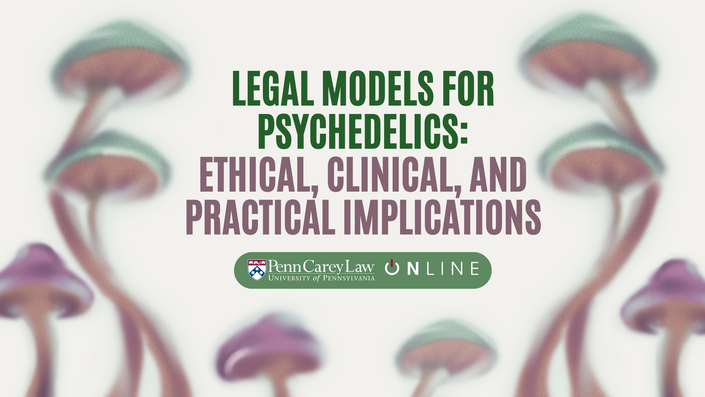
Legal Models for Psychedelics: Ethical, Clinical, and Practical Implications
1.5 Ethics credits
As psychedelics become increasingly mainstream, a variety of legal models are developing in tandem, including decriminalization, legalization, and more medicalized approaches, ranging from psychedelic services and therapy provided by specific state-licensed outlets and providers to traditional FDA drug approval. What are the ethical, clinical, and practical implications of these legal models for emerging psychedelic businesses and those interested in using psychedelics? Which models should be preferred – and which should be avoided? In this panel, experts will describe the current legal landscape for psychedelics, how it is playing out in practice, and what shape it should take in the future.
Speakers
- Ismail Ali, Director, Policy & Advocacy, Multidisciplinary Association for Psychedelic Studies
- I. Glenn Cohen, James A. Attwood and Leslie Williams Professor of Law and Deputy Dean, Harvard Law School; Faculty Director, Petrie-Flom Center for Health Law Policy, Biotechnology & Bioethics
- Natalie Gukasyan, Assistant Professor of Psychiatry, Columbia University Irving Medical Center
- Steven Levine, SVP Patient Access and Medical Affairs, COMPASS Pathways
- Moderator: Holly Fernandez Lynch L’06, Assistant Professor of Medical Ethics, University of Pennsylvania Perelman School of Medicine; CTIC Affiliated Faculty
This event is cosponsored by the Center for Technology, Innovation & Competition, Penn Medical Ethics & Health Policy, and the Penn Carey Law STEM Club.
Your Instructor

